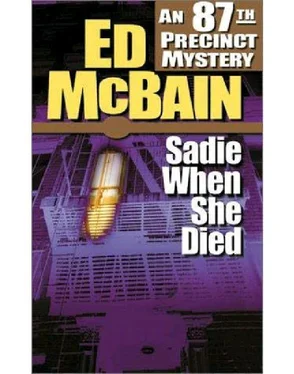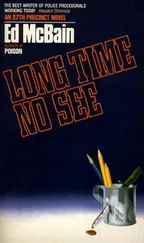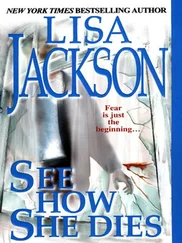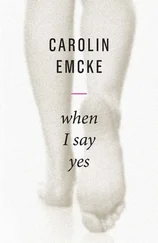Ed McBain - Sadie When She Died
Здесь есть возможность читать онлайн «Ed McBain - Sadie When She Died» весь текст электронной книги совершенно бесплатно (целиком полную версию без сокращений). В некоторых случаях можно слушать аудио, скачать через торрент в формате fb2 и присутствует краткое содержание. Жанр: Полицейский детектив, на английском языке. Описание произведения, (предисловие) а так же отзывы посетителей доступны на портале библиотеки ЛибКат.
- Название:Sadie When She Died
- Автор:
- Жанр:
- Год:неизвестен
- ISBN:нет данных
- Рейтинг книги:4 / 5. Голосов: 1
-
Избранное:Добавить в избранное
- Отзывы:
-
Ваша оценка:
- 80
- 1
- 2
- 3
- 4
- 5
Sadie When She Died: краткое содержание, описание и аннотация
Предлагаем к чтению аннотацию, описание, краткое содержание или предисловие (зависит от того, что написал сам автор книги «Sadie When She Died»). Если вы не нашли необходимую информацию о книге — напишите в комментариях, мы постараемся отыскать её.
Sadie When She Died — читать онлайн бесплатно полную книгу (весь текст) целиком
Ниже представлен текст книги, разбитый по страницам. Система сохранения места последней прочитанной страницы, позволяет с удобством читать онлайн бесплатно книгу «Sadie When She Died», без необходимости каждый раз заново искать на чём Вы остановились. Поставьте закладку, и сможете в любой момент перейти на страницу, на которой закончили чтение.
Интервал:
Закладка:
He had left Nora at the door to her apartment, where she had given him her customary handshake and her now-expected “Thank you, I had a very nice time,” and rode down in the elevator now, wondering what his next move should be. He did not believe her doctor-boyfriend existed (he seemed to be having a lot of trouble lately with girls and their goddamn doctor-boyfriends) but at the same time he accepted the fact that there was a man in her life, a flesh-and-blood person whose identity, for some bewildering reason, Nora chose not to reveal. Kling did not appreciate anonymous competition. He wondered if a blitz might not be in order, telephone call when he got back to his apartment, another call in the morning, a dozen roses, a telegram, another dozen calls, another dozen roses, the whole stupid adolescent barrage, all of it designed to convince a girl that somebody out there was madly in love with her.
He wondered if he was madly in love with her.
He decided he was not.
Then why was he expending all this energy? He recalled reading someplace that when a man and a woman got divorced, it was usually the man who remarried first. He supposed that what he had shared with Cindy was a marriage, of sorts, and the sudden termination of it . . . well, it was silly to think of it in terms of a marriage. But he supposed the end of it (and it certainly seemed to have ended) could be considered a divorce, of sorts. In which case, his frantic pursuit of Nora was merely a part of the reaction syndrome, and . . .
Damn it, he thought. Hang around with a psychologist long enough and you begin to sound like one.
He stepped out of the elevator, walked swiftly through the lobby, and came out of the building into a blinding snowstorm. It had not been this bad ten minutes ago, when the taxi had dropped them off. The snow was thick and fast now, the wind blowing it in angry swirls that lashed his face and flicked away, successively, incessantly. He ducked his head, and began walking up toward the lighted avenue at the end of the block, his hands in his pockets. He was on the verge of deciding that he would not try to see Nora Simonov again, would not even call her again, when three men stepped out of a doorway, directly into his path.
He looked up too late.
A fist came out of the flying snow, smashing him full in the face. He staggered back, his hands still in his pockets. Two of the men seized him from behind, grabbing both his arms, his hands still trapped in his pockets. The one standing in front of him smashed a fist into his face again. His head snapped back. He felt blood gushing from his nose. “Keep away from Nora,” the man whispered, and then began pounding his fists into Kling’s abdomen and chest, blow after blow while Kling fought to free his arms and his hands, his strength ebbing, his struggle weakening, slumping as the men behind him held his arms, and the man in front battered relentlessly with short hard jabs until Kling wanted to scream aloud, and then wanted only to die, and then felt the welcome oblivion of unconsciousness and did not know when they released him at last and allowed him to fall face forward into the white snow, bleeding.
12
“A ll right,” Byrnes said, “I’ve got a cop in the hospital, now what the hell happened?”
Tuesday morning sunshine assaulted the lieutenant’s corner window. The storm had ended, and the snowplows had come through, and mile-high snowbanks lined the streets, piled against the curb. It was four days before Christmas, and the temperature was below freezing, and unless the city’s soot triumphed, the twenty-fifth would still be white.
Arthur Brown was black. Six feet four inches tall, weighing 220 pounds, with the huge frame and powerful muscles of a heavyweight fighter, he stood before the lieutenant’s desk, his eyes squinted against the sunshine.
“I thought you were tailing Fletcher,” Byrnes said.
“I was,” Brown answered.
“All right. Fletcher and this girl live in the same goddamn building. Kling was jumped leaving the building. If you were on Fletcher . . .”
“I was on him from five o’clock yesterday afternoon, when he left his office downtown.” Brown reached into his inside jacket pocket. “Here’s the timetable,” he said. “I didn’t get back to Silvermine Oval till after midnight. By that time, they’d already taken Bert to the hospital.”
“Let me see it,” Byrnes said, and took the typewritten sheet from Brown’s hand, and silently studied it:
SURVEILLANCE GERALD FLETCHER Monday, December 20
4:55 P.M.–Relieved Detective Kapek outside office bldg 4400 Butler. Suspect emerged 5:10 P.M., went to his car parked in local garage, and drove to home at 721 Silvermine Oval, entered bldg at 5:27 P. M.
7:26 P.M.–Suspect emerged from building, started to walk south, came back, talked to doorman, and waited for his car. Drove to 812 North Crane, parked. Suspect entered apartment building there at 8:04 P.M.
8:46 P.M.–Suspect emerged from 812 North Crane in company of redheaded woman wearing fur coat (black) and green dress , green shoes, approx height and weight five-six, 120, approx age thirty. Drove to Rudolph’s Restaurant, 127 Harrow. Surveillant (black) tried to get table, was told he needed reservations, went outside to wait in sedan. 9:05 P.M.
Byrnes looked up. “What’s this crap about needing a reservation? Was the place crowded?”
“No, but . . .”
“Anything we can nail them on, Artie?”
“Just try to prove anything,” Brown said.
“Stupid pricks,” Byrnes said, and went back to the timetable.
10:20 P.M.–Suspect and redheaded woman came out of Rudolph’s, drove back to 812 Crane, arrived 10:35 P.M., went into building. No doorman, surveillant entered unobserved, elevator indicator stopped at eleventh floor. Check of lobby mailboxes showed eight apartments on eleventh floor (names of occupants not marked as to color of hair).
Byrnes looked up again, sharply this time. Brown grinned. Byrnes went back to the report, sighing.
11:40 P.M.–Suspect came out of building, walked north to Glade, where he had parked car, and drove directly home, arriving there ten minutes past midnight. 721 Silvermine scene of great activity, two RMP cars in street, patrolman questioning doorman. Suspect said few words to doorman, then went inside. Detective Bob O’Brien already on scene and waiting to relieve, reported Kling had been assaulted half hour ago and taken to Culver Avenue Hospital. Relieved by O’Brien at 12:15 A.M.
“When did O’Brien get there?” Byrnes asked.
“I radioed in when I was leaving the woman’s building, told O’Brien the suspect was probably heading home, and asked him to relieve me there. He said he arrived a little after midnight. The ambulance had already come and gone.”
“How’s Bert?” Byrnes asked.
“I checked a few minutes ago. He’s conscious, but they’re holding him for observation.”
“He say anything?”
“Three guys jumped him,” Brown said.
“Sons of bitches,” Byrnes said.
Carella had not yet spoken to either Sal Decotto or Richard Fenner, the two remaining people listed in Sarah’s book, but he saw no reason to pursue that trail any further. He had been taken to the bars where Sarah (or rather Sadie) had picked them up, and whereas he was not the type of person who ordinarily judged a book by its cover, he had a fair idea of what the men themselves would be like. Big and mean, according to the bartender at The Saloon.
The hardest thing Carella had ever had to learn in his entire life was that there actually were mean people in the world. As a young man, he had always believed that people behaved badly only because they’d experienced unhappy childhoods or unfortunate love affairs or deaths in the family or any one of a hundred assorted traumas. He changed his mind about that when he began working for the Police Department. He learned then that there were good people doing bad things, and there were also mean rotten bastards doing bad things. The good ones ended in jail just as easily as the mean ones, but the mean ones were the ones to beware. Why Sarah Fletcher had sought out big, mean men (and apparently one mean woman as well) was anybody’s guess. If the place-listings in her book could be considered chronological, she’d gone from bad to worse in her search for partners, throwing in a solitary dyke for good measure (or was Sal Decotto a woman, too?), and ending up at Quigley’s Rest, which was no afternoon tea party.
Читать дальшеИнтервал:
Закладка:
Похожие книги на «Sadie When She Died»
Представляем Вашему вниманию похожие книги на «Sadie When She Died» списком для выбора. Мы отобрали схожую по названию и смыслу литературу в надежде предоставить читателям больше вариантов отыскать новые, интересные, ещё непрочитанные произведения.
Обсуждение, отзывы о книге «Sadie When She Died» и просто собственные мнения читателей. Оставьте ваши комментарии, напишите, что Вы думаете о произведении, его смысле или главных героях. Укажите что конкретно понравилось, а что нет, и почему Вы так считаете.












